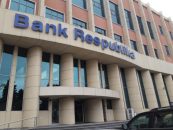New Research Reveals Stark Disconnect Between Sustainability Plans and Action at Most Companies
Recent research by Oxford Economics and SAP has uncovered significant barriers to corporate sustainability initiatives. The problems include a lack of communication and engagement by executives, ineffective use of data, siloed technologies that don’t share processes or information and a lack of cross-company and industry collaboration and partnership.
Yet while the value of sustainability initiatives is not being realized broadly, the study also shows that the business case for them is well understood. Executives expressed eagerness for their organizations to become more sustainable, citing efficiency (58%), improving brand reputation (46%) and meeting customer needs (44%) as top business benefits for sustainability efforts. Overall, 63% of the executives surveyed indicated that their company has a formal sustainability plan already in place.
“Executives recognize that sustainability efforts can lead to better profitability, attract both customers and employees and drive a positive impact across their supply chains,” said Vivek Bapat, senior vice president, Purpose and Sustainability, SAP. “But achieving these goals requires a high degree of communication and engagement. At SAP, we’re trying to understand how we can support these companies in realizing results from their sustainability goals and to defining best practices across industries.”
Sustainability Leaders Are Emerging
Most organizations responding to the survey described loosely defined sustainability commitments and limited connections with internal and external audiences. Roughly two thirds of executives who do have sustainability plans in place say the scope and vision of the plans are not effectively communicated across the organization or externally.
However, the research did identify a small group of executives – about 9% – who have embraced sustainability-focused processes and are reaping the benefits. These “sustainability leaders” are defined by traits such as setting clear expectations at the strategic level, applying the transformative power of technology and data management and engaging with important audiences such as employees, supply chain partners and policymakers.
“Sustainability leaders go beyond vision to ensure that sustainability initiatives are acted upon,” said Edward Cone, editorial director, Oxford Economics. “They communicate with key constituencies both inside and outside the company, and they use integrated technologies to measure and track performance in a way that drives accountability.”
Addressing the Core Concerns Can Jump-Start Sustainability Initiatives
The Oxford Economics and SAP study offers comprehensive data to paint a broad picture of corporate sustainability efforts. From the responses, key challenges emerge where companies can focus to improve their sustainability results and move into the “Leaders” category. Efforts to address those concerns fall into five core areas:
- Begin with executive sponsorship. Sustainability efforts should start with setting an explicit plan that is communicated and emphasized throughout the organization.
- Drive clear, consistent communications. While sustainability efforts begin at the top, the vision must be turned into action by employees. Connecting key teams with clear goals is important to push greater sustainability performance.
- Integrate processes, technologies and data. Most businesses have not embedded sustainability into their core strategies, leading to disconnected technologies that double count, prevent strategic planning and leave financial and nonfinancial information disconnected. Unifying these assets provides visibility into progress and performance.
- Extend sustainable practices to customers, partners and suppliers. Energy providers are a key component of sustainability practices, but more than one third of respondents don’t view using sustainable energy providers as critical to their carbon-reduction goals (36%). They also don’t impose the same requirements on their partners that they put on themselves. Sustainability is a team sport that requires participation across the supply chain.
- Understand that data is critical. Capturing and analyzing data provides insight into resources and efficiency. It enables the organization to measure outcomes and raises the flag when improvements are needed. This key component is an area ripe for innovation across industries.
Read the full study. SAP and Oxford Economics are committed to continuing to study and understand sustainability best practices and to helping companies worldwide build more efficient, sustainable operations.
About SAP
SAP is the world leader in enterprise applications in terms of software and software-related service revenue. Based on market capitalization, we are the world’s third largest independent software manufacturer. SAP solutions and services are used by more than 440,000 customers in 180 countries around the world.
In 2015, SAP opened a legal representative office in Azerbaijan. Since then, SAP has helped Azerbaijan companies from retail, wholesale and distribution, CPG, telecom, public sector, finance transform and optimize their businesses based on innovative solutions.
The company actively invests in training, enhancing competence and developing ecosystem expertise. There are 5 country’s universities in Azerbaijan receive free access to SAP software for educational purposes.
For all questions related to SAP activities in CIS please contact Tatiana Zvereva (tatiana.zvereva@sap.com). For more information, visit www.sap.com.






